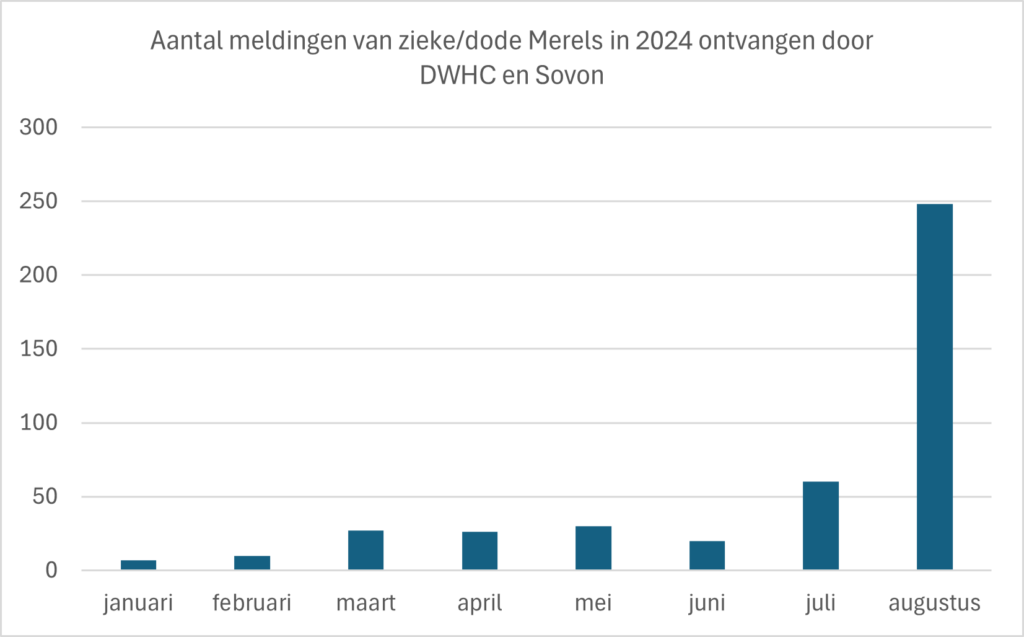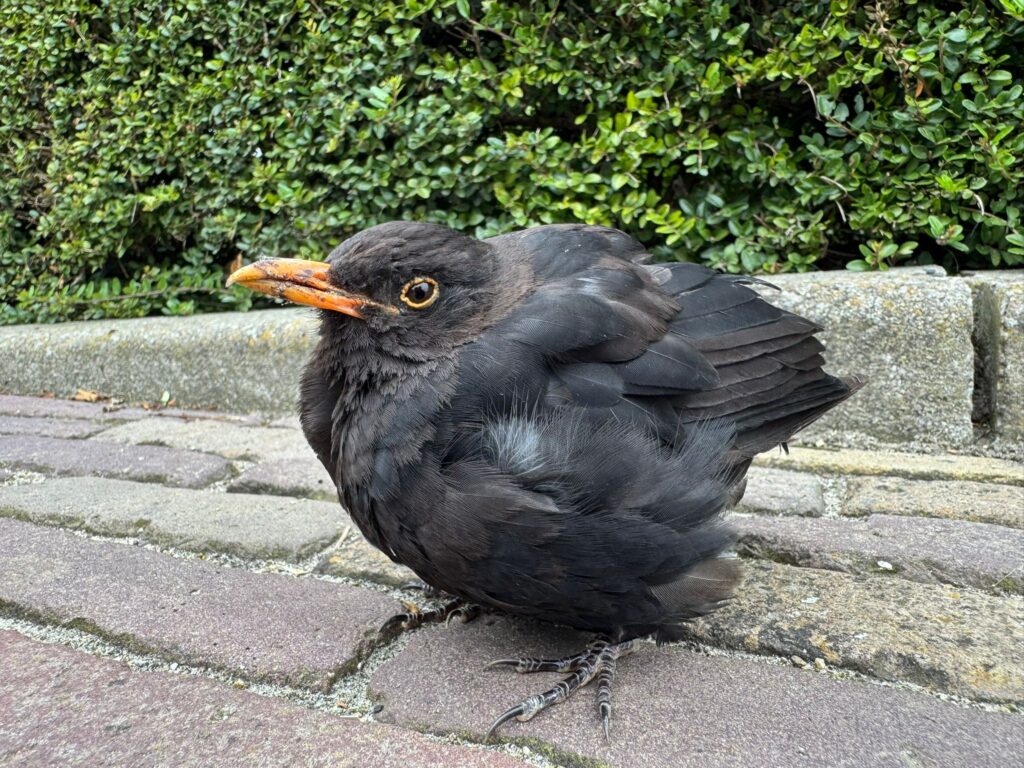

The last couple of weeks, an above average amount of ill and dead common blackbirds has been reported to the DWHC from all over the Netherlands. A selection of these birds has been examined and tested positive for infection with the Usutu-virus. This virus has caused a higher mortality among common blackbirds before in 2016-2018. The most recent findings tell us that the virus is still circulating among common blackbirds.
In August 2024, around 250 dead common blackbirds were reported via DWHC and Sovon. This number was a lot higher compared to previous months (see figure 1). The reports were received from all over the Netherlands, however North-Holland, South-Holland, Zeeland, and the Waddeneilanden had only few reports. Bird counts from the LiveAtlas project also show that live common blackbirds are currently being observed less than normally (see figure 2).


The usutu virus is an arbovirus that occurs in birds and is transmitted by mosquitoes. The virus can cause mortality in various birds’ species, including owls and songbirds. However, common blackbirds have been especially affected, with high mortality rates in the Netherlands during the late summers of 2016, 2017, and 2018. During those years significantly more dead common blackbirds were reported than is the case now, although this may partly be explained by the extensive media coverage of ‘common blackbird mortality’ at the time. For more information about the usutu virus, see the article published a few months ago in De Levende Natuur: https://dwhc.nl/wp-content/uploads/sites/393/2024/04/57_60_DLN2_Usutu-Auteursbestand.pdf.
Some of the dead common blackbirds have been collected for postmortem research at the DWHC and Erasmus Medical Center. As many as 9 out of the 12 common blackbirds examined in 2024 tested positive (see Table 1). These birds have been collected from the provinces of Overijssel, Gelderland, North-Holland, Utrecht, and Limburg. The numbers may still increase as recently collected samples are under investigation. Additionally, previous years have shown that many birds can still be infected in September. The results indicate that the usutu virus is still present and continues to cause problems, particularly in common blackbirds.
| Year | Tested birds (all species) | Usutu positive birds (all species) | Tested common blackbirds | Usutu positive common blackbirds |
| 2024 (Jan-Jul) | 65 | 18 (28%) | 12 | 9 (75%) |

We would like to thank everyone who has taken the time to report dead birds or send them in for research. Of course, reports will continue to be welcome in the coming period. They are indispensable signals to us about what is going on in nature.